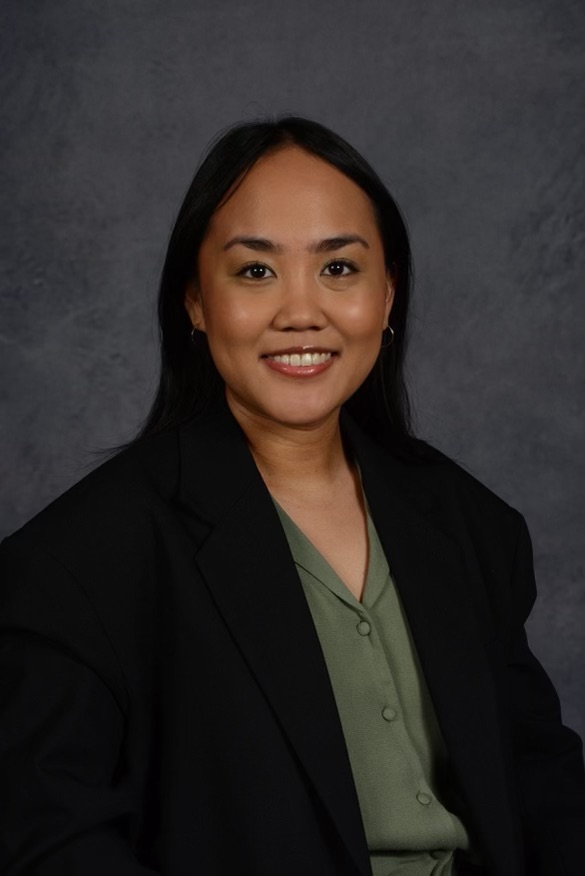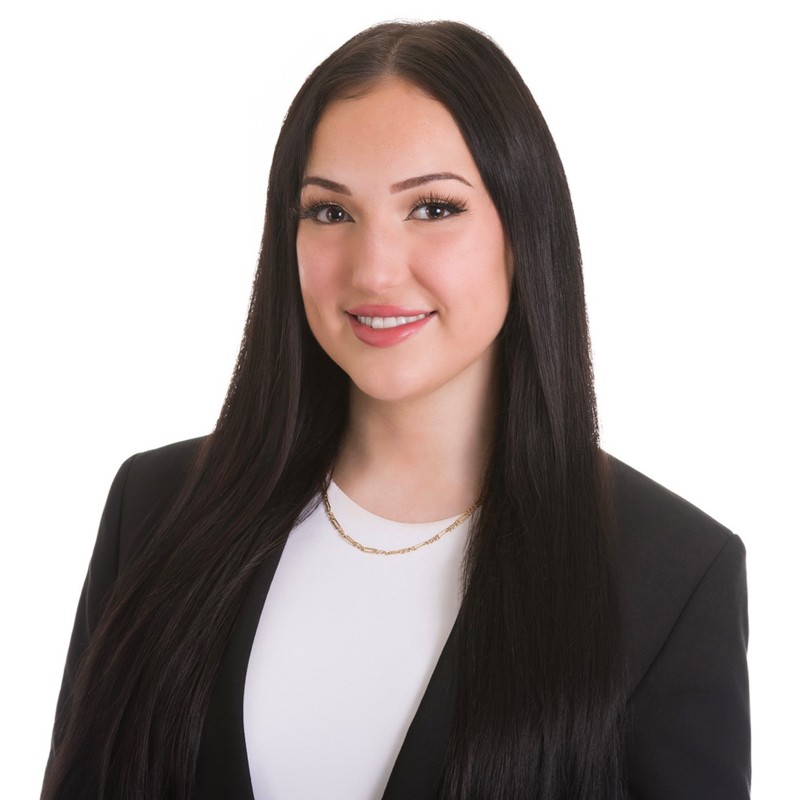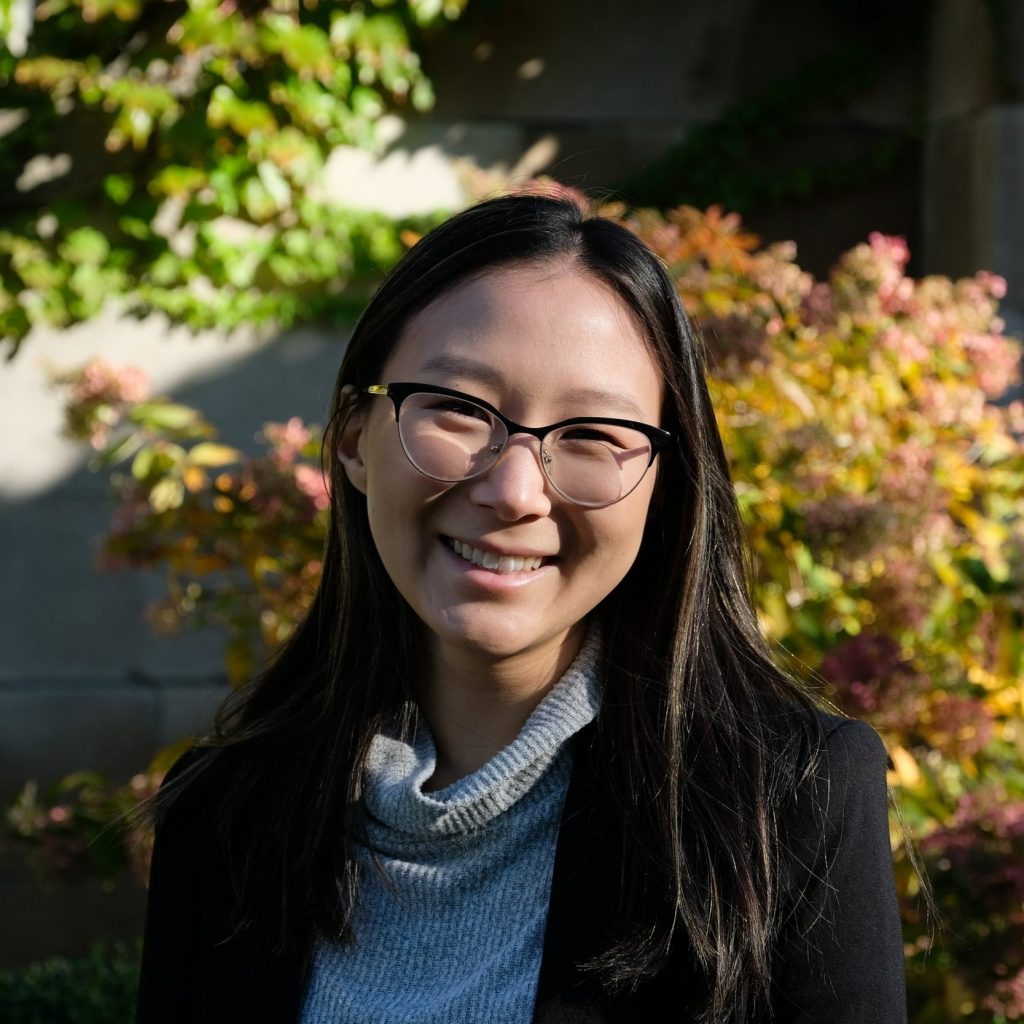This summer’s Donner Fellows share their experiences and advice
Background
Funded through a donation from the Donner Canadian Foundation, Donner Civic Leadership Fund Fellowships have a value of up to $10,000 and are awarded to fund summer student roles with public interest organizations. While previously students had to arrange their own fellowship placements, the Faculty has begun to pre-arrange placements for some students. 1Ls and 2Ls can apply for their desired Donner Fellowship positions through the Law School Summer Employment Program (LSSEP)—which accepts applications early second semester—without needing to draft their own project proposals or coordinate directly with organizations.
Hannah Beltran (2L JD/MBA) – Canadian Centre for Housing Rights

Over the summer, Hannah Beltran worked at the Canadian Centre for Housing Rights (CCHR). CCHR works to advance the right to housing in Canada. The organization advocates for tenants’ rights and protections, especially those who are low-income. They represent clients at the Landlord and Tenant Board (LTB) in Toronto and intervene in cases related to housing rights nationwide.
Beltran worked in three departments during her tenure with CCHR: Services and Education, Strategic Litigation and Law Reform, and Policy Advocacy. Her duties as a Donner Fellow included legal research and writing as well as client intake. Beltran drafted memos for CCHR to support arguments made in LTB hearings and their submissions to provincial legislatures regarding housing laws. She was also responsible for her own caseload, providing clients with legal information regarding topics such as eviction rights, housing discrimination, and applications. The best part of Beltran’s summer was getting to see the tangible impacts of her and CCHR’s work. For example, a memo she wrote on a Friday afternoon was used in a Monday morning hearing and helped to get the matter dismissed within seven minutes in the CCHR’s client’s favour.
Overall, Beltran found that working within CCHR’s litigation department strengthened her interest in pursuing a career in the field. She is glad she took advantage of the day-to-day opportunities presented to her during her time with CCHR—she only wrote the seven-minute-dismissal memo after a message asking for last-minute help was sent out to all summer students, and she volunteered to assist. Essentially, any role is what you make of it. Volunteering to go above and beyond what she was required to do strengthened Beltran’s summer experience and helped expand her legal knowledge and skills. Although having minimal knowledge of tenant rights from 1L Property initially presented a bit of a learning curve, her time as a Donner Fellow with CCHR was incredibly rewarding.
In terms of advice for those who may be interested in pursuing similar public interest roles over their 1L summers, Beltran says not to fear going into a role where you don’t have a lot of familiarity or experience with the area of law you are working in—you will be given space to learn and be provided with a knowledgeable support system.
Ostara McDonald (2L) – Innocence Canada

As a Donner Fellow, Ostara McDonald served as a caseworker with Innocence Canada, an organization dedicated to advocating for wrongfully convicted individuals and preventing future injustices.
McDonald’s work centred around one focal case. In her role, she reviewed the court transcripts and other relevant documents to prepare a memo in which she preliminarily assessed whether the case was one with which the organization should move forward. She also gained experience in practical matters by assisting the staff lawyers with filing and attending the Court of Appeal for Ontario (ONCA) to help with procedural matters. Once a week, McDonald and the rest of the summer students participated in Zoom meetings highlighting individuals working in wrongful convictions. These educational sessions demonstrated the many different aspects of the field. For example, one guest was a forensic pathologist who discussed how flies can be studied and used as evidence of an accused’s innocence in cases involving bodily decomposition. Innocence Canada also hosted people like the Career Development Office (CDO) Director Theresa Chan to provide students with broader career advice. This confirmed for McDonald that the organization genuinely cared about her success even beyond the summer.
One of the highlights of McDonald’s time with Innocence Canada was attending the exoneration of Bernard Doyle, a St. John’s man wrongfully convicted in the death of his partner’s son, which was ultimately revealed to have been accidental in nature. On June 12, ONCA heard new evidence regarding the 1996 incident and agreed to overturn Doyle’s conviction and enter an acquittal. McDonald felt genuinely involved with and appreciated by Innocence Canada as she got to attend this important and impactful event, which was featured in national news. She also had the opportunity to meet other exonerees and see firsthand the organization’s impact when she went to their Annual General Meeting.
As someone who also participated in the 1L Recruit, McDonald emphasizes that not landing a firm job does not preclude you from having a fulfilling summer. She enjoyed her time with Innocence Canada so much that she is continuing her work with them through the Faculty of Law’s externship program.
Sharon Liyento (2L JD/MSW-ITR) – Women’s Legal Education and Action Fund

Sharon Liyento was a Donner Fellow with the Women’s Legal Education and Action Fund (LEAF). LEAF seeks to advance gender equality through case intervention, education, and law reform. The organization also publishes reports and working papers. They often intervene in cases related to gender-based violence, socio-economic rights, sexual assault and consent law, and family law.
Liyento’s main responsibility over the summer was assisting with research for LEAF’s upcoming case interventions and coding research data for their Alternative Justice Mechanisms project, whose final report will be released soon. Additionally, she conducted research on topics such as the charitable statuses of anti-abortion organizations and the impact of marital status on disability benefits. Liyento participated in LEAF’s Equality Day event, which featured notable guests, a drag show, and many lawyers in attendance. The event was focused on showcasing LEAF’s advocacy and raising funds to continue supporting its mission.
Given that this was her first time working in a legal role, Liyento was grateful to have worked in a small, close-knit team of lawyers whose work closely aligned with her ultimate career aspirations, which include working with a public interest organization. She was also able to realize that she prioritizes a role that includes more of a balance between client-facing and individual work, which she may not have known without her experience at LEAF.
Liyento recommends leveraging background skills and focusing on applying to jobs that are truly and personally interesting. Not only will this narrow the field (which may feel necessary given the broad range of interesting Donner Fellowships offered), but it helps ensure that you can speak candidly and genuinely in your interviews. Liyento’s past roles, which included volunteering for a sexual assault crisis line, working with McMaster’s Sexual Violence Prevention and Response Office, and working with the David Asper Centre for Constitutional Rights’ Reproductive Rights Working Group, were applicable to LEAF, and she was able to highlight them during the interview process. She believes these sorts of relevant experiences make a strong candidate and can demonstrate interest in a fellowship even in the absence of any actual legal experience.
Potential Improvements
Some interviewees expressed feelings that the LSSEP process could have been made less stressful—a sentiment with which I, as a fellow participant, agree. Overall, they expressed that emailing candidates individually with offers felt a bit chaotic and that perhaps a ranking system, whereby candidates and organizations rank one another through U of T Law Connect (UTLC), may have streamlined the process.
Nevertheless, interviewees expressed gratitude for the CDO’s advocacy and support throughout the job search process and during the summer. Beltran recounted how the CDO helped ensure that her and other JD/MBA students did not miss out on opportunities due to their program’s earlier start date. McDonald also shared that when she sustained a concussion in early June, the CDO and Innocence Canada were extremely understanding and did not pressure her to go back to work before she was ready.





